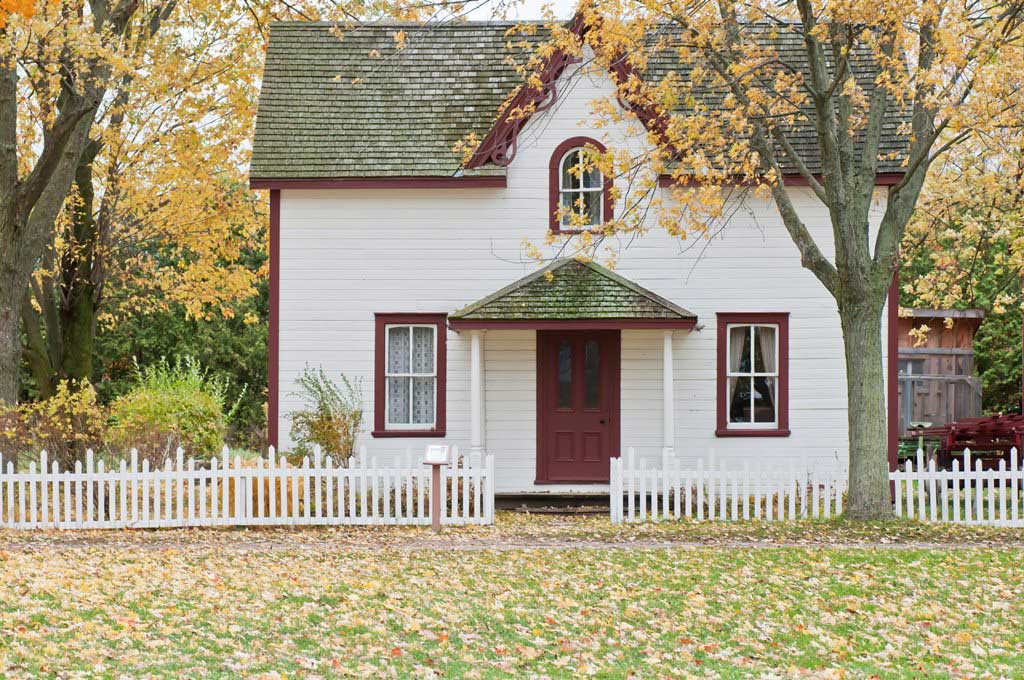
PHOTO TAKEN BY SCOTT WEBB FROM UNSPLASH
You are about to purchase a new home; maybe it’s even your first home. Congratulations! The purchase of a new home can be a very exciting and rewarding endeavor and it is most likely the biggest investment of your life. Now let me guess… the new home is perfect in so many ways but there is something about the home you would like to change. Perhaps the kitchen is too small, or the wallpaper is dated; maybe you’d like to refinish the basement or build on an additional room. This is a reality for most people; unless you build your home from scratch it will seldom meet all your needs and wants. There will inevitably be something in the home that you need or want to renovate, either immediately or soon.
Moving, on its own, is a stressful and chaotic experience for most people. When you add a renovation to the mix you significantly increase the chance of pandemonium followed by an anxiety attack. There is an adage, “an ounce of prevention is worth a pound of cure”. The better prepared we are for any major event in our life the better we will fare. The same applies for moving and renovating. It pays to do your research, seek advice, and prepare a road map. If you don’t have time to plan, or hate the process of planning ahead, find someone to assist you.
Here are a few tips that will help you navigate through the process of finding the house that is right for you and making it home.
Needs and Wants
Ideally you have prepared a list of your needs and wants before you start looking for a home. They are listed in priority sequence and cover everything from proximity to work, to the perfect amount of storage. The needs should come first. The wants should come second. Take time to prepare this list making sure it covers everything. When you come upon that seemingly perfect house you will know immediately what it offers and where it falls short.
Budget
Your list of needs and wants should coincide with your budget. Be realistic about what you can afford. Consider the cost of the home, the cost of the moving expenses, the cost of the renovations, and the cost of any finishes and furniture that are important for your immediate comfort. Also, keep in mind what a home in your neighborhood is worth especially if there is any chance you might resell i.e., don’t spend $300,000 upgrading a $500,000 home if the average house price in the neighborhood is $400,000.
Rebates and Tax Credits
Consider government rebates and tax credits, whether for the purchase of a home or for renovating. It pays to spend a bit of time researching what is available to you.
Invest in Professional Advice
Investing in the professional advice of a good contractor, electrician, plumber, interior designer or decorator always pays off and can potentially save you a lot of money; otherwise spent on costly mistakes. These professionals can give you space planning and renovating ideas as well as estimates. They can also help you plan for your renovation, so it causes the least amount of headache and stress.
A Rock Star Real Estate Agent
Here is one of my favorite memories of working with a real estate agent. We were viewing a home that was hot on the market in a great neighborhood and I started to get excited. My real estate agent took me aside and told me that she felt it didn’t match up with my dream home list and I could do better. I was a bit uncertain at first but trusted her advice and two weeks later I found my dream home. A rock star real estate agent understands the value of building good relationships and has your best interests at heart. Certainly they will be interested in selling you a home, but they will be equally interested in helping you find the right home. Working with a good realtor is essential, and there are a lot of great articles online on how to find one.
A Sound Structure
If possible, purchase a home that is structurally sound and has a layout that works well for you. Try not to get too caught up in the previous occupant’s decor. Changing finishes and adding furniture is less invasive and potentially less costly then construction. The fewer structural changes you need to make the more you will save in your renovation costs; and the less likely you are to need a building permit.
Building Permits
No matter the argument, building permits exist to protect people and keep them safe. When penny pinchers, or people who take a do-it-yourself approach choose to avoid the permit process they not only put their own lives at risk, but also the lives of those who own the home after them. On top of that, when something goes wrong, the insurance company of the homeowner who authorized the construction may no longer cover the damages.
Renovating Before You Move In
Renovating before you move into your new home is ideal when you know exactly what needs to be renovated, you have ample time to plan for this renovation, and you have the finances to support this approach. The renovation process, done in this way, is generally faster and less stressful for homeowner and contractor alike.
Renovating After You Move In
Both moving and renovating are stressful events. Trying to do them both at the same time is courageous. If your new home adequately provides your basic needs, allow yourself some time to settle into your new neighborhood and your regular routine before attempting to renovate. I even recommend giving yourself a year or two to live in the space so that you can acquaint yourself with the unique personality of your home. You might find yourself growing fond of a layout or decorative element that you initially disliked; and the extra time will give you an opportunity to see where the problems lie and subsequently what your real priorities are.
If you are moving and/or renovating a home and need some advice on how to navigate through the design process, let us put our expertise to work for you.






